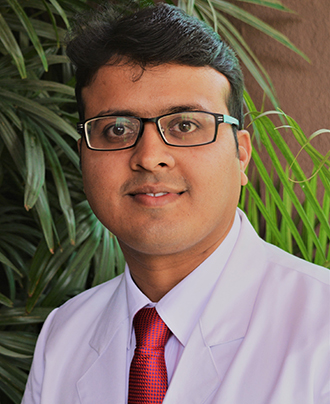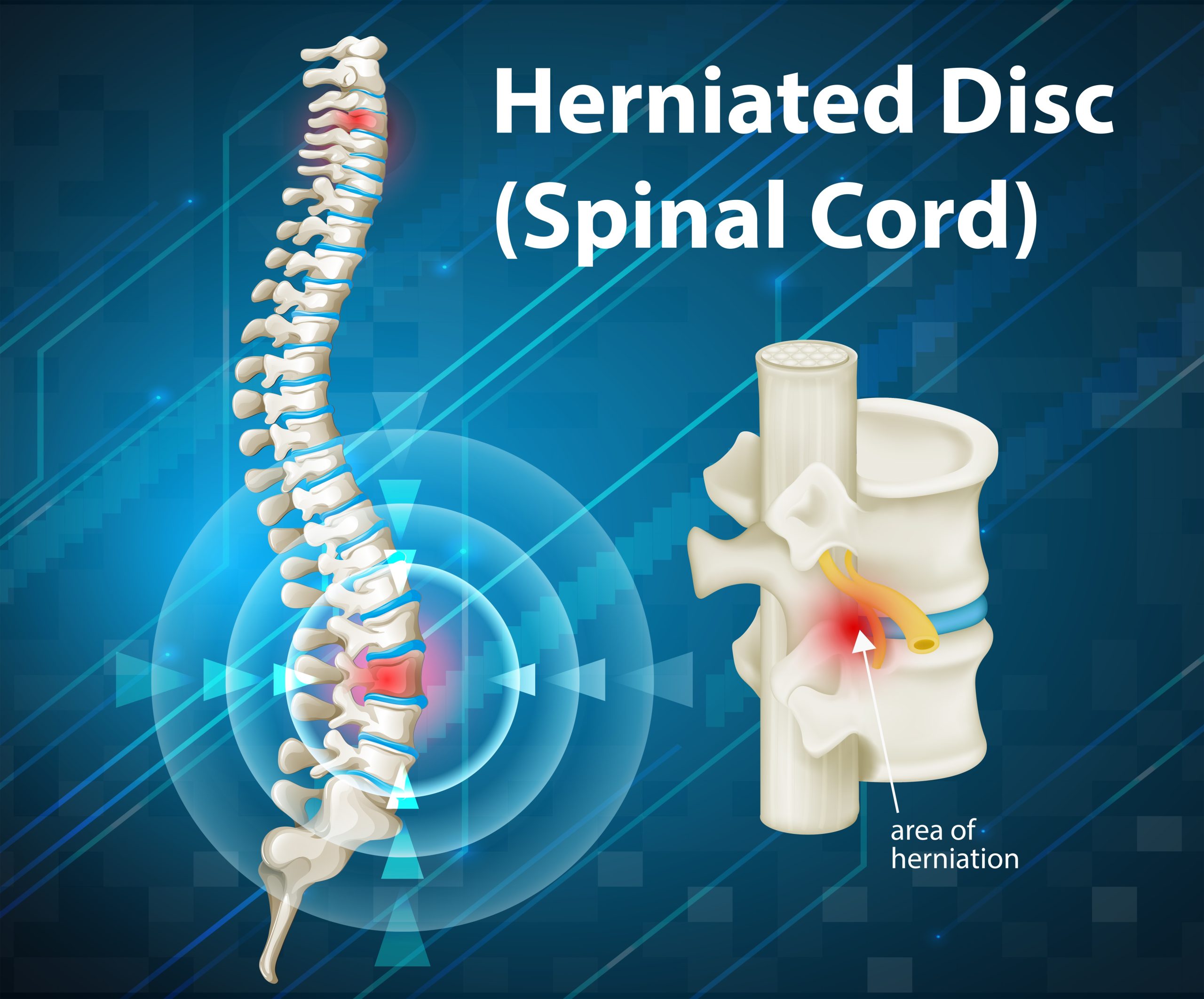Meet Our Doctor
Dr. Paresh Bang
M.B.B.S, D.orth, DNB Fellow in Spine Surgery
Consultant Spine Surgeon
Dr. Paresh Bang is a young and dynamic Spine surgeon who is rendering his services in Nagpur. He has an experience of more than 7 years in the treatment of Spine problems.

Surgery For Cervical Spine Slip Disc In Nagpur

Surgery For Cervical Spine Slip Disc
A herniated disc (also called bulged, slipped or ruptured) is a fragment of the disc nucleus that is pushed out of the annulus, into the spinal canal through a tear or rupture in the annulus.
A Slip Disc is an injury of the spine (backbone). You have a series of bones (vertebrae) in your spine, stretching from the base of your skull to your tailbone. Between your vertebrae are round cushions called disks. The disks act as buffers between your bones, allowing you to bend and move with ease. When one of these disks tears or leaks, it’s called a herniated disk.
Symptoms
- Arm or leg pain. If your Slip disk is in your lower back, besides pain in your lower back, you’ll typically feel pain in your buttocks, thigh and calf. You might have pain in part of the foot as well.
- Numbness or tingling. People who have a herniated disk often have radiating numbness or tingling in the body part served by the affected nerves.
- Weakness. Muscles served by the affected nerves tend to weaken. This can cause you to stumble, or affect your ability to lift or hold items.
Treatment
- Medication: Your provider may prescribe an anti-inflammatory pain reliever or muscle relaxant.
- Physical therapy: A physical therapist teaches you an exercise program to help relieve pressure on your nerves. Exercise loosens tight muscles and improves circulation.
- Spinal injections: Called an epidural or nerve block, a spinal injection is a shot of steroid medication directly into your spine. The medication reduces swelling and inflammation of the nerve from the disk herniation. This will allow your body to heal and return to activity faster.
- Surgery: In rare cases, a large herniated disk might injure nerves to the bladder or bowel
Risk factors
Factors that can increase the risk of a Slip disk include:
- Weight. Excess body weight causes extra stress on the disks in the lower back.
- Genetics. Some people inherit a predisposition to developing a herniated disk.
- Smoking. It’s thought that smoking lessens the oxygen supply to disks, causing them to break down more quickly.
- Frequent driving. Being seated for long periods combined with the vibration from the motor vehicle engine can put pressure on the spine.
- Being sedentary. Regular exercise can help prevent a herniated disk.
Complications
Rarely, disk herniation can compress the entire spinal canal, including all the nerves of the cauda equina. In rare instances, emergency surgery might be required to avoid permanent weakness or paralysis.
- Worsening symptoms. Pain, numbness or weakness can increase to the point that they hamper your daily activities.
- Bladder or bowel dysfunction. Cauda equina syndrome can cause incontinence or difficulty urinating even with a full bladder.
Prevention
- Exercise. Strengthening the trunk muscles stabilizes and supports the spine.
- Maintain good posture. This reduces pressure on your spine and disks. Keep your back straight and aligned, particularly when sitting for long periods. Lift heavy objects properly, making your legs — not your back — do most of the work.
- Maintain a healthy weight. Excess weight puts more pressure on the spine and disks, making them more susceptible to herniation.
- Quit smoking. Avoid the use of any tobacco products.
